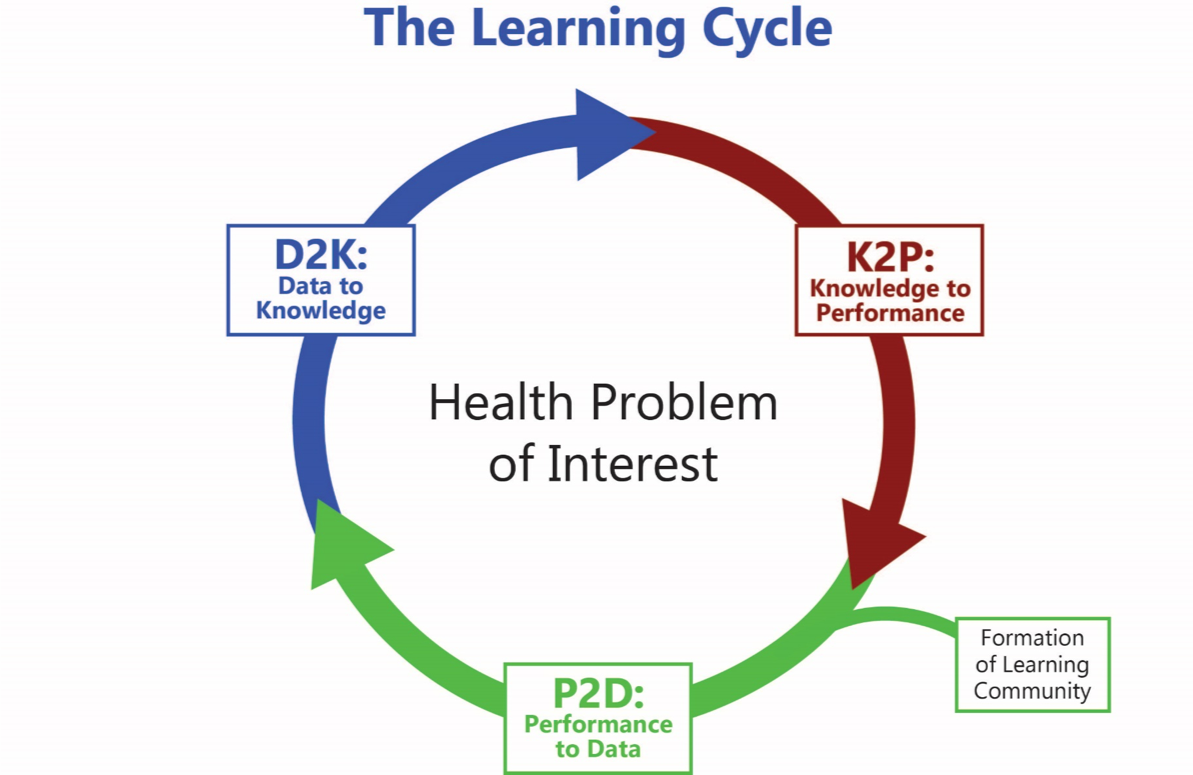There is a critical question at the heart of the learning health sciences philosophy: How do we expedite the data-driven transformation of a system that encompasses over one-sixth of a nation's economy and is responsible for the health and welfare of the entire population?
Getting in the Loop
Learning Health Systems
As the concept of learning has rapidly evolved over the past two decades with broader access to massive online resources, what and how we learn and how we utilize the data to influence health care improvement has become an area in urgent need of effective strategies.
In a Learning Health System (LHS), organizations or networks continuously self-study and adapt using data and analytics to generate knowledge, engage stakeholders, and implement behavior change to transform practice. The LHS concept, first expressed by the Institute of Medicine in 2007, is now being rapidly adopted across the country and around the world.
In a learning health system, the cycle of learning to change behavior to improve outcomes applies to all workforce development, from individuals and groups to the system as a whole.
The Learning Loop

The Learning Loop is the framework for doing this in a Learning Health System. Similar to Kolb’s experiential learning cycle, it is comprised of three main actions that cycle continuously to more detailed and refined results. Ongoing improvement is only sustainable when all three parts are continuously engaged:A learning state of mind is open to new information and ready to change on that basis. An efficient learning process, supported by infrastructure, is one that actually enables continuous improvement to be embedded in routine practice.
Data to Knowledge: Many improvement efforts focus on gathering data and gleaning knowledge from the data (D2K). Often the cycle stops there, however the Loop continues, harnessing the real power of data.
Knowledge to Performance: Effective learning health systems apply the knowledge to implement change and transform health care through individual training, team training, implementation of new processes, integration of new technologies, and changes to the process and environment of care.
Performance to Data: Then the lessons of improved performance are used to inform and refine the next cycle of gathering data. The learning cycle repeats continuously.
Many research articles have been published about the promise and efficacy of learning health systems.
Read more:
- Toward an information infrastructure for global health improvement, Yearbook of Medical Informatics, 2017
- Learning Health Systems Journal, founded and edited by Dr. Charles Friedman
- Toward a science of learning systems: a research agenda for the high-functioning Learning Health System, J Am Med Inform Assoc, 2015
- Weaving Together a Healthcare Improvement Tapestry, J of AHIMA, 2014

